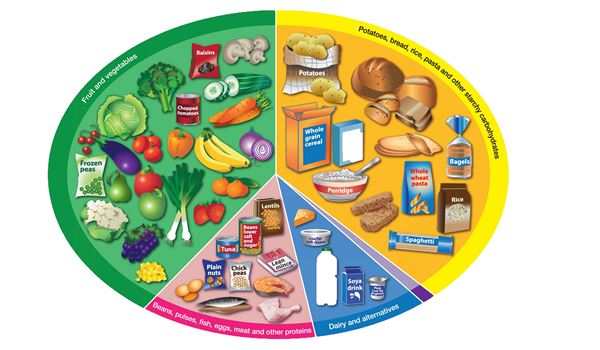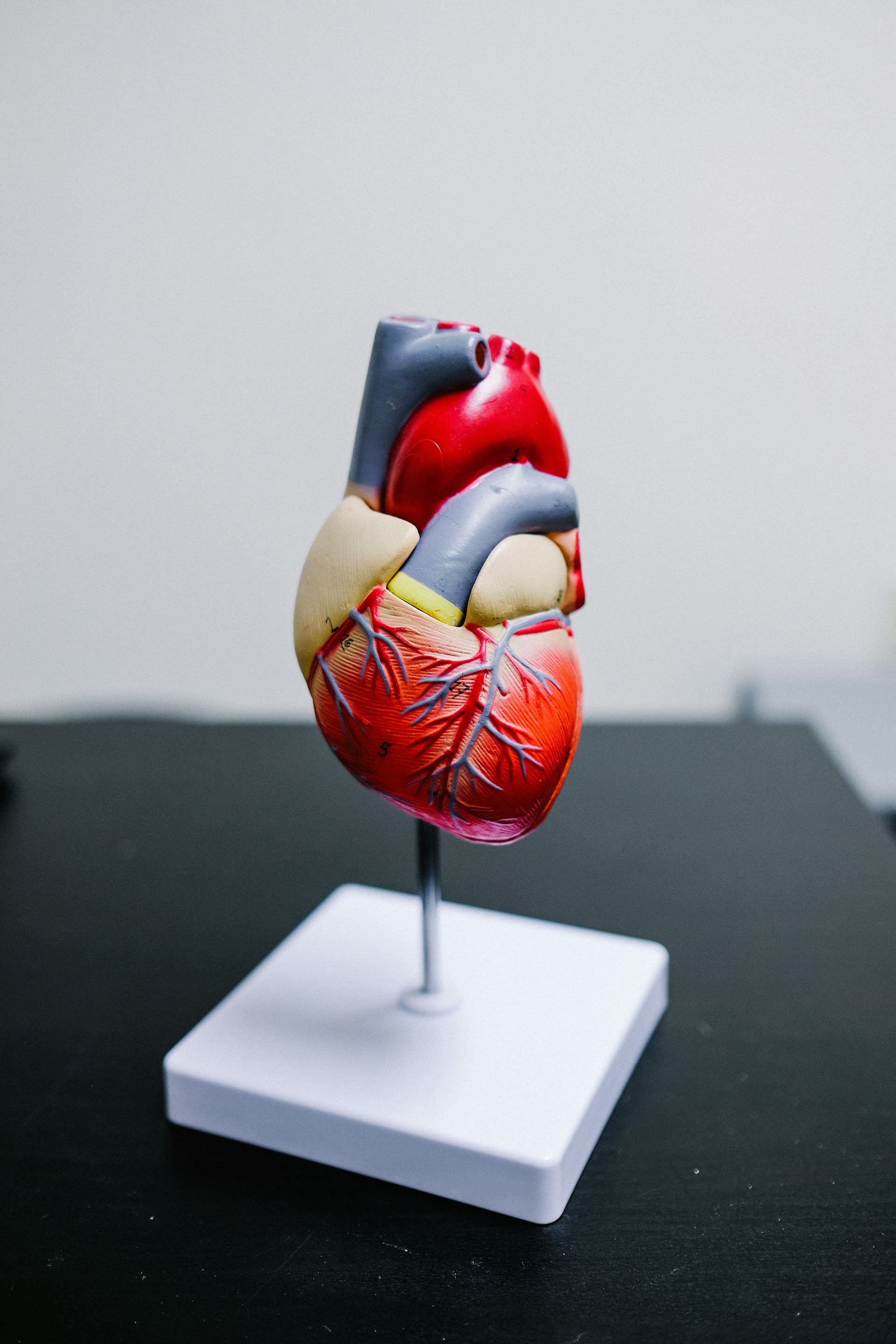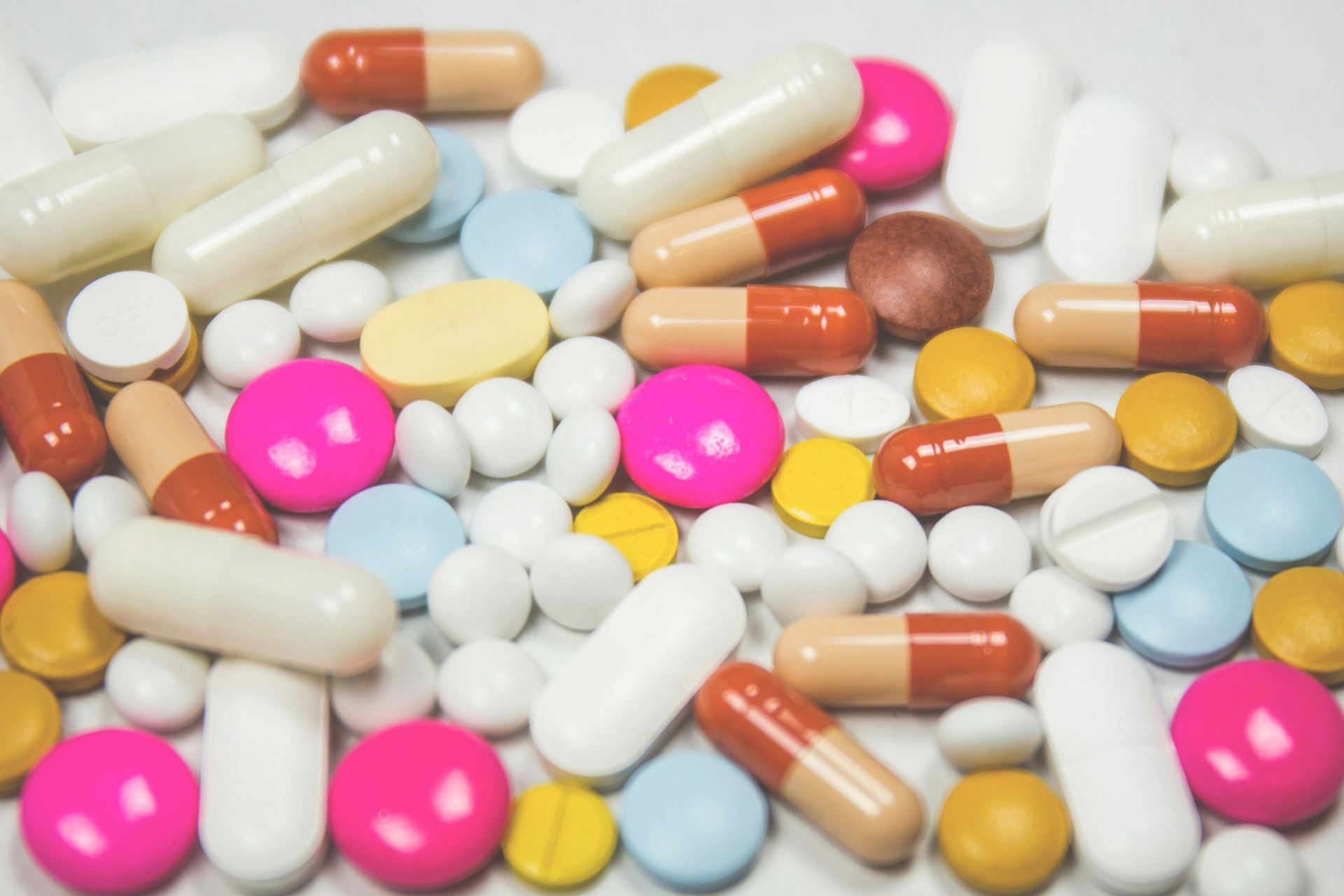Health & Cholesterol
Dietary Advice
Eating a healthy, balanced diet is an important part of maintaining good health, and can help you feel your best.
This means eating a wide variety of foods and eating the right amount of food and drink to achieve and maintain a healthy body weight.
The Eatwell Guide gives some ideas about picking the right food to make sure that your diet is balanced -
- eat at least 5-a-day of fruit and veg
- base meals on higher fibre starchy foods like potatoes, bread, rice or pasta
- have some dairy or dairy alternatives (such as soya drinks)
- eat some beans, pulses, fish, eggs, meat and other protein
- choose unsaturated oils and spreads, and eat them in small amounts
- Drink plenty of fluid(at least 6 to 8 glasses a day)
Vegetarian diet and Vegan diet give some helpful suggestions to make sure you are getting all your diet needs met.

Heart Health
Fats
The two main types of fat are saturated and unsaturated fats. For a healthy heart it is best to have less saturated fat as this increases the levels of bad cholesterol in your blood.
You should aim to follow a Mediterranean-style diet. This means eating more wholegrain bread, rice, pasta, fish and lots of fruit & veg.
Replace butter and cheese with products based on vegetable and plant oil, such as olive oil.
Cholesterol
Cholesterol is a fatty substance found in your blood. It is produced naturally in the liver. We need some cholesterol to stay healthy.
Having high cholesterol is mainly caused by:
- eating foods high in saturated fat
- not being active enough
- smoking
- having too much body fat, especially around your middle
It can also run in families.
Changing what you eat, being more active, and stopping smoking can help get your cholesterol back to a healthy level.
Lowering your Cholesterol with diet
A few small changes to your diet can make a big difference to your cholesterol level.
Choose healthier fats
To help lower your cholesterol you don’t need to avoid fats altogether.
You should cut down on foods high in saturated fat like: fried foods, meat pies, sausages, butter, cream, cheese, crisps, cakes, biscuits, chocolate, palm oil and cocounut oil.
Instead try healthier fats like: oily fish, avocados, nuts and seeds; use oils such as olive or vegetable.
Should I start a statin?
You may have had a blood test to check your cholesterol and a member of the team has called to say your cholesterol is high and advised that you have a look at our cholesterol and statin page. Please take your time going through the information on this page and the links provided. If you would like to start a statin then please arrange a routine GP appointment by calling the practice on 0131 4476277.
Statin
Statins are a group of tablets that help to lower the level of bad cholesterol in the blood. This is important as high cholesterol can cause narrowing and hardening of the vessles supplying the heart causing coronary heart disease
Its a tablet that you take once per day and example names are: atorvastatin, simvastatin or rosuvastatin.
They can sometimes interact with grapefruit juice and other medicines so its important to read the information leaflet or contact your pharmacist for advice.

If I have high cholesterol does that mean I have heart disease?
If you don't have any history of a heart attack or stroke, you may have had your cholesterol checked routinely as a health check up.
Your GP will have then used a risk calculation to work out if you have more than a 1 in 10 chance of developing heart disease in the next 10 years, and a member of our team will have contacted you to ask you to look at this webpage and the links. For further information about the risk calculator used please press here.
Do statins have risks or side effects?
Like all medicines, statins can cause side effects.
Statins can harm the liver and so your GP will check your liver and kidneys are working before you start a statin and will check your liver tests again at 3 months and at 1 year. If you start a statin it is important you arrange those follow up blood tests.
Page created: 03 February 2023

